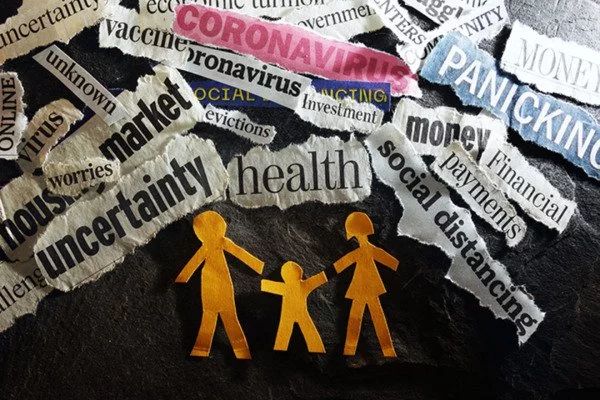The COVID-19 pandemic may have caused many changes in your life, including uncertainty, altered daily routines, financial pressures, and social isolation at times. You might be concerned about becoming ill, how long the pandemic will last, whether your job will be affected, and what the future holds. Overloading on information, rumors, and misinformation can make your life feel out of control and leave you unsure of what to do.
According to a new study published this week in the open-access journal PLOS ONE by Andrew Chan of Harvard Medical School, Tim Spector of King’s College London, and colleagues, racial and ethnic minorities faced a disproportionate mental health burden during the COVID-19 pandemic.
Previous research has shown that minorities bear a disproportionate COVID-19 burden, including higher rates of infection, severe disease, hospitalization, and death when compared to non-Hispanic whites. Furthermore, a threefold increase in the incidence of depression symptoms has been reported in the aftermath of the pandemic. However, the effects of COVID-19 on the mental health of minorities were unknown.
The early stages of the COVID-19 pandemic were extremely disruptive to daily life. We discovered that racial and ethnic minorities in the United States and the United Kingdom were more likely to screen positive for depression and anxiety. This suggests that people of color face a disproportionate impact and mental health burden, which must be considered as we reshape healthcare systems to prioritize the long-term consequences of this disease.
Andrew Chan
In the new study, the researchers used data on 691,473 people in the U.S. and U.K. who responded to the smartphone-based COVID Symptom Study between January 23, 2021 and June 9, 2021. Participants were recruited through social media, reported baseline information, and then logged daily information on symptoms and COVID-19 testing results using the Zoe app. Questions were included from the PHQ-4 (Panvalidated 4-item Patient Health Questionnaire for Depression and Anxiety), PHQ-9, and the GAD-7 (7-item General Anxiety Disorder) screening tools.
People with substance use disorders, notably those addicted to tobacco or opioids, are likely to have worse outcomes if they get COVID-19. That’s because these addictions can harm lung function and weaken the immune system, causing chronic conditions such as heart disease and lung disease, which increase the risk of serious complications from COVID-19.

The study found that, after controlling for personal factors including prior mental health diagnoses and changes in leisure time activities, Black participants in the U.S. were 1.16 times more likely to screen positive for depression than White participants (95% CI 1.02-1.31). Compared to White participants, Hispanic participants in the U.S. were 1.23 times more likely to screen positive for depression (95% CI 1.11-1.36) and 1.23 times more likely to show signs of anxiety (95% CI 1.12-1.34). Similar results were seen for Black and Asian participants in the U.K. as well as within other subgroups of participants including Black healthcare workers, who had higher odds of depression and anxiety than White healthcare workers.
The authors conclude that minority communities in both the United States and the United Kingdom have been disproportionately impacted by the mental health burden of COVID-19 and will suffer far beyond any presumed end of the pandemic.
The authors continue: “The early stages of the COVID-19 pandemic were extremely disruptive to daily life. We discovered that racial and ethnic minorities in the United States and the United Kingdom were more likely to screen positive for depression and anxiety. This suggests that people of color face a disproportionate impact and mental health burden, which must be considered as we reshape health care systems to prioritize the long-term consequences of this disease.”





